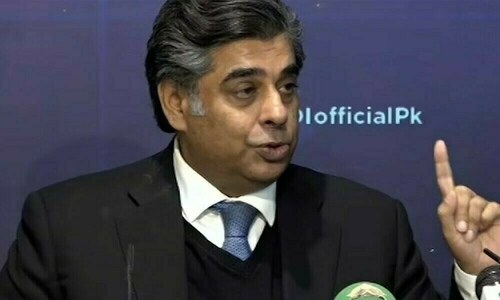Former Minister Advocates for Interest Rate Reduction to Revitalize Economy
Islamabad: Gohar Ejaz, a former caretaker federal minister, has voiced concerns that the existing monetary policy is stifling economic progress. He pointed out the disparity in interest rates, noting Pakistan’s rate of 11 percent compared to India’s 5.5 percent and China’s 3 percent. He believes that the current monetary policy is hindering business activities that contribute to tax revenue.
In a statement released on Sunday, Ejaz mentioned the upcoming State Bank monetary policy meeting scheduled for July 30. He reiterated the need to address the high interest rate, which he argues is impeding the Federal Board of Revenue’s (FBR) target of achieving an 18% increase in tax collection. He emphasized that the monetary policy is suppressing revenue-generating business operations.
Ejaz urged for an immediate decrease in the interest rate to 9 percent, with a further reduction to 6 percent by December 31, 2025. He asserted Pakistan’s significant potential in manufacturing and exports, which is currently being hampered by the restrictive monetary policy. According to Gohar Ejaz, the decision on July 30 will determine whether Pakistan receives the necessary competitive boost.
He also highlighted that the cost of conducting business in Pakistan is twice as high as in neighboring countries. Electricity rates in Pakistan range from 12 to 14 cents per unit, while regional countries benefit from rates of 5 to 9 cents per unit. The unemployment rate in Pakistan stands at 22 percent, contrasting sharply with India’s 4.2 percent and China’s 4.5 percent. Industry leaders are calling for the monetary policy committee to prioritize actions that support business activities.
Lowering the interest rate would decrease operational costs, stimulate economic activity, and foster job creation. Gohar Ejaz stated that a reduction in the interest rate could lead to savings of 3 trillion rupees.
He suggested exploring alternative strategies to curb unnecessary imports as part of the economic policy. He clarified that the boom-and-bust cycle of 2022 was not a consequence of low interest rates. The country imported $3 billion worth of vaccines and spent an additional $12 billion on oil and gas imports due to the conflict in Ukraine. These factors were unrelated to the domestic interest rate. He deemed an 11 percent interest rate against a 5 percent annual inflation rate as unreasonable.



Comments (0)
No comments yet. Be the first to comment!
Leave a Comment